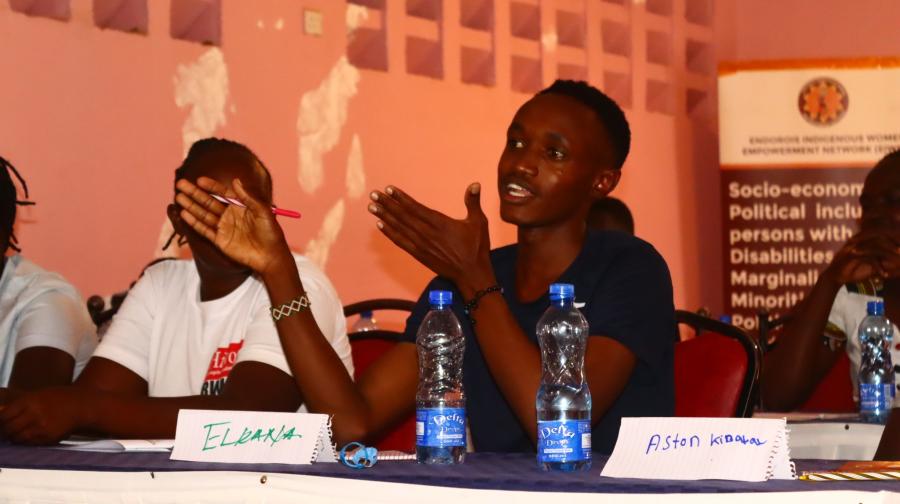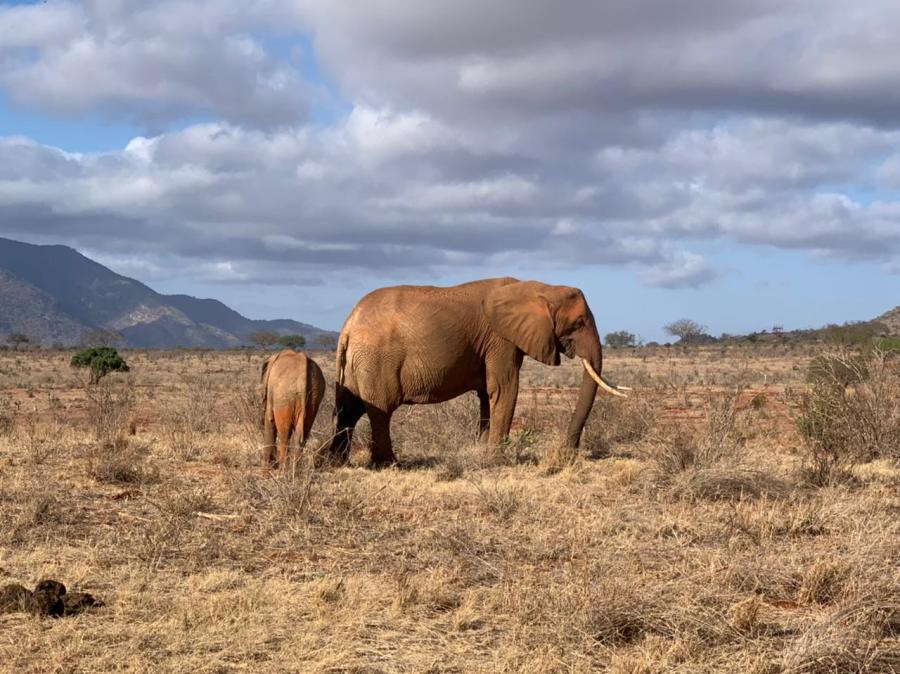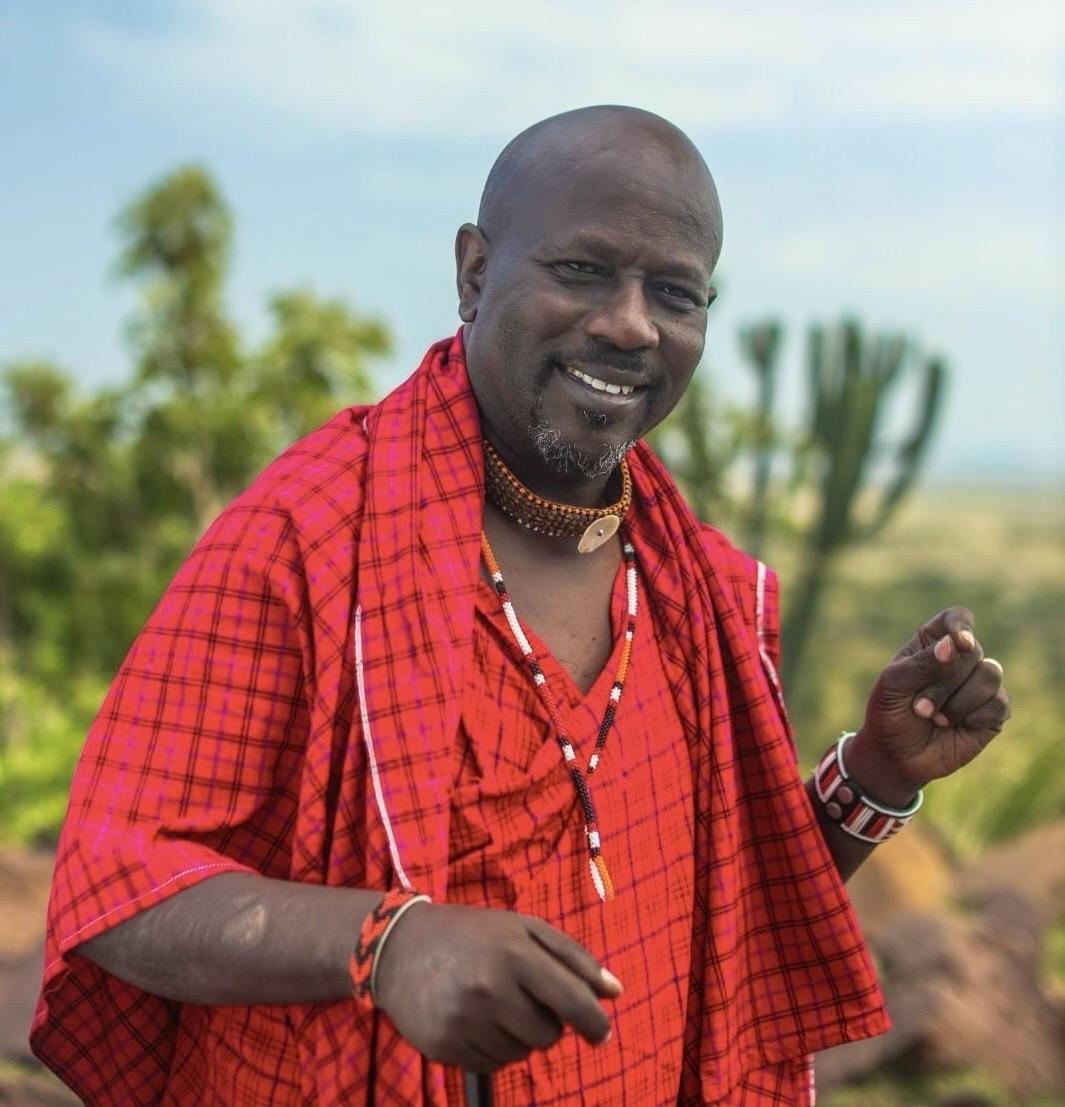
By Lucas Kasosi (Maasai, CS Intern)
A landmark land victory in Kenya becomes a global lesson in evidence-based advocacy, intergenerational wisdom, and resistance with vision.
“Ampu iima Ilkeek, Kiguana totona,” is a Maasai saying that emphasizes that open and candid discussions are the foundation for meaningful solutions. For generations, this proverb has anchored Maasai decision-making, especially in times of conflict or uncertainty. It reflects a cultural truth: that justice begins not with force, but with dialogue rooted in honesty, respect, and shared responsibility. That same spirit lives on in Indigenous Livelihoods Enhancement Partners (ILEPA), drawn from the Maa word ilepa, meaning “to arise” or “ascend.” More than a name, it is a declaration. It calls on Indigenous communities to rise with voice, with evidence, and with unity.
For Stanley Kimaren Ole Riamit, a Maasai scholar, land rights defender, and founding Director, ILEPA represents far more than uplift. It is a declaration of agency, restoration, and self-determination in the face of dispossession. “We realized that land struggles weren’t just about community conflicts,” he says. “They involve governments, business actors, lawyers, and powerful institutions. That complexity demanded an organized, evidence-based response, and that’s how ILEPA was born.”
Since 2009, ILEPA has grown from a modest, community-based organization into a regional powerhouse working to protect Indigenous pastoralist rights through legal advocacy, customary governance revitalization, and climate justice activism. Its mission is not to lead forever, but to empower communities until they no longer need ILEPA at all. “Our success is making ILEPA irrelevant by empowering communities to rise, speak, and act for themselves,” says Ole Riamit. “That’s the real meaning of self-determination.”
Land Justice in Maji Moto
The story that ignited ILEPA’s regional impact began in the hills of Maji Moto, where more than 700 acres of Maasai ancestral land were fraudulently appropriated, with one individual receiving 25 times the average allotment. What followed was a seven-year legal battle costing 15 million Kenyan shillings (approximately $116,000 USD) in legal and logistical expenses that exposed a web of collusion between officials, surveyors, and elites.
But in 2023, the community triumphed. A Kenyan court canceled the illegal titles and returned the land to its rightful owners. It was the first time in Narok that titles had been canceled and reissued to an Indigenous group, a case now studied by land justice advocates across East Africa. “This is proof that land grabs can be reversed,” Ole Riamit reflects. “Evidence, community voice, and relentless persistence can bring justice, even in a system rigged against us.”
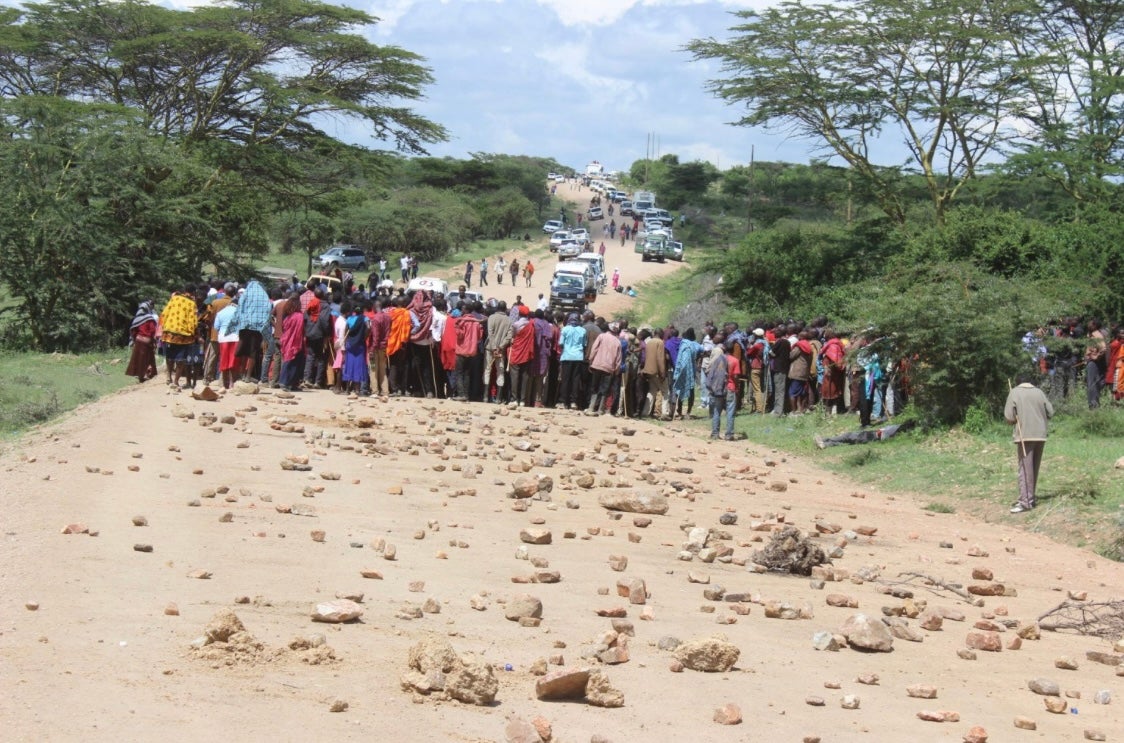
Photos taken in the early days of the Maji Moto landrights struggle as the community was demonstrating against the grabbing of public utilities. Image source: ILEPA
Key to the case’s success was meticulous preparation: identifying the legal violations, mapping the institutional responsibilities, compiling exhaustive documentation, and building a grassroots movement that made the struggle impossible to ignore. “We packed the court at every mention. The judge himself told us to give others a chance,” Ole Riamit laughs. “That visibility reframed the case into public interest litigation.”
The case was about more than land. It was about identity, belonging, and the collective rights of a community to determine its future. “Land rights are intergenerational struggles. We fight not just for ourselves, but for those yet to be born,” Ole Riamit says.
Reclaiming Governance Through Elatia
For the Maasai, governance has always flowed from a place of reciprocity rather than hierarchy. At the center is Elatia, the neighborhood unit where community life unfolds. “Elatia is where labor is shared, knowledge is learned, cows are pooled, and weather is read in the stars. It’s our Indigenous school. It’s not blood that binds us, it’s shared space,” says Ole Riamit.
Beyond Elatia, governance involves a flexible council of Elders, clan systems that offer social safety nets, and age-set leaders who perform sacred roles during rites of passage. Yet these Indigenous structures were systematically marginalized during and after colonization. “The State acts like our leaders don’t exist,” Ole Riamit says. “They built a parallel system, from the president to the village chief, while sidelining Elders with the deepest knowledge.”
With privatization of land, these ancestral governance systems lost not just power, but purpose. “Privatization undermined our collective wisdom. We are restoring governance that is accountable not just to law, but to land, ancestors, and future generations,” Ole Ramit says.
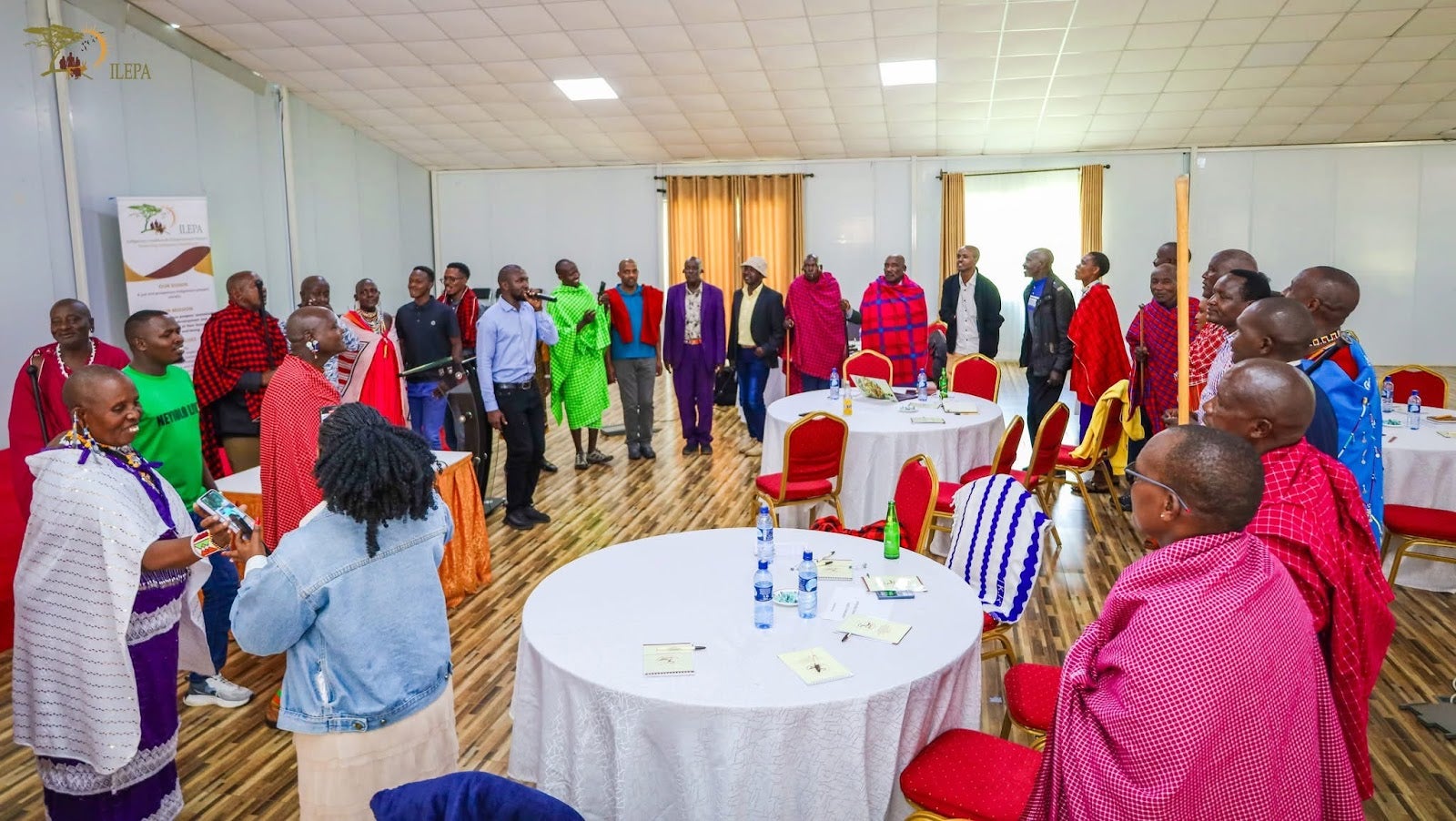
Traditional leaders, Elders, women, and youth gather for an ILEPA-led dialogue on Indigenous knowledge, governance, and climate resilience.
ILEPA is now working to restore the authority of customary institutions by organizing annual summits, documenting traditional land laws, and creating intergenerational platforms for Elders and youth to interact. “Leadership is not about status, it’s about service and wisdom,” Ole Riamit says. “In our culture, you don’t offer yourself. You’re called into leadership by your gifts and trust.”
Beekeeping, Women, and Ecological Sovereignty
As climate change, fencing, and urbanization shrink communal grazing areas, ILEPA has turned to sustainable livelihoods that safeguard both culture and ecology. One of its most successful initiatives is women-led beekeeping, a practice that is reshaping gender roles and land stewardship in Narok County.
“Women were traditionally caretakers of the home, milking cows, fetching water, feeding families,” Ole Riamit explains. “But today, the household needs have multiplied. School fees, healthcare, drought recovery, it’s too much. We needed something culturally acceptable and environmentally sustainable. Honey became a natural option.”
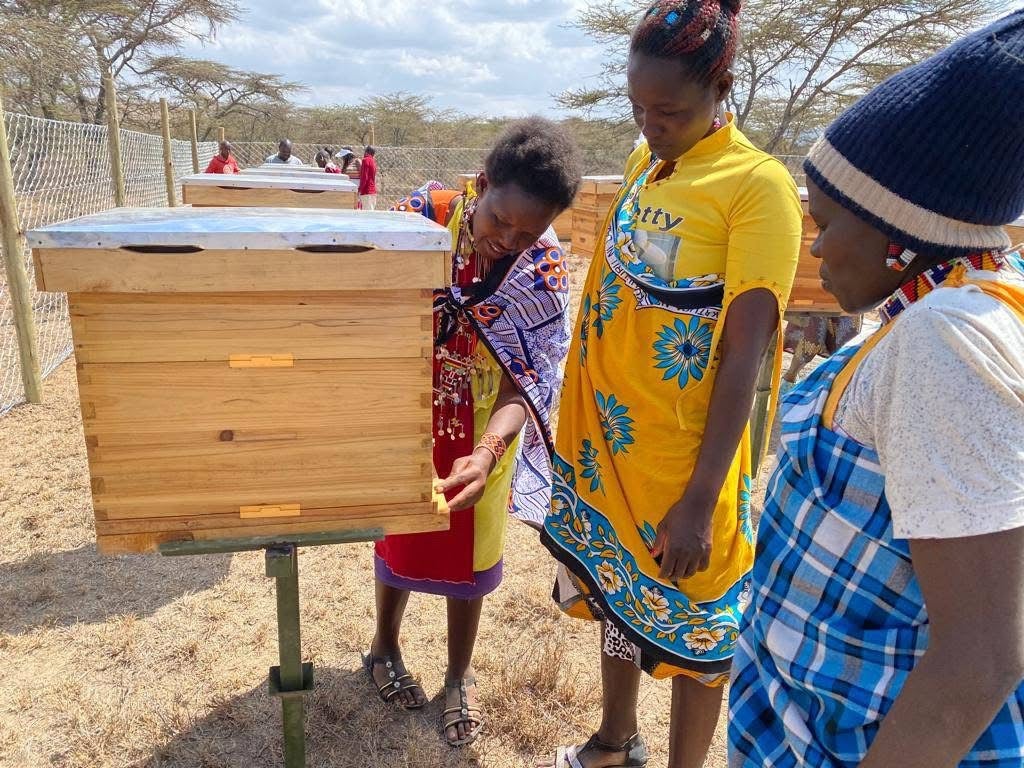
Empowering Indigenous women in Nchaishi, Majimoto through beekeeping, skills training, and sustainable livelihoods.
With minimal land use and high returns, beekeeping fits seamlessly into women’s lives. “In one acre, you can keep 30 hives. And traditionally, Maasai men never kept bees; it was seen as a Ndorobo’s domain. So there’s no competition. Just empowerment,” Ole Riamit explains.
Three women’s groups, Enkiu, Nchaishi, and Enkutoto, manage over 120 modern hives, each capable of producing up to 20 kg of honey per harvest. The groups have invested in protective suits, queen separators, and honey extraction units. “They’ve bought livestock, built iron-roofed houses, paid school fees. Honey isn’t just food, it’s freedom. Our women now own their future,” Ole Ramit says.
The ecological benefits are equally significant. By offering an alternative to charcoal production, beekeeping has helped reduce deforestation in the region. “We’re not just diversifying income; we’re regenerating landscapes,” says Ole Ramit.
Indigenous Knowledge is Science
ILEPA doesn’t just advocate for Indigenous rights: it actively challenges the idea that Indigenous Traditional Knowledge is outdated. In fact, it argues that Traditional Knowledge is foundational science. “Our rituals align with rain cycles. Our medicine protects the tree. This is science, not superstition,” says Ole Riamit. “We believe the world is better when different ways of knowing, western and Indigenous, inform each other.”
Through extensive research and documentation, ILEPA has developed an Indigenous biocultural seasonal calendar mapping livestock movement, ceremonies, weather patterns, and herbal medicine usage across the Maasai year. For example, community-wide ceremonies only occur during the rains. Meat is dried in cold months. Medicinal tree bark is never stripped all around the tree, only vertically, to keep the tree alive. Youth have also developed a Maa language app that archives greetings, history, clan knowledge, and even radio livestreams for diaspora connection.
“We’re proving that Indigenous knowledge is not static. It evolves, it adapts, and it informs the future,” Ole Ramit says. A new community library in Maji Moto now houses much of this material, offering a space for learning, sharing, and preserving generational wisdom.
Climate Justice Must Include Consent
Despite global recognition of Indigenous Peoples as biodiversity stewards, Ole Riamit is critical of how international climate projects operate. “We are called custodians of nature, yet excluded from decision-making,” he says. “Our lands host wind farms and carbon markets, but we’re the last to be consulted and the first to suffer.”
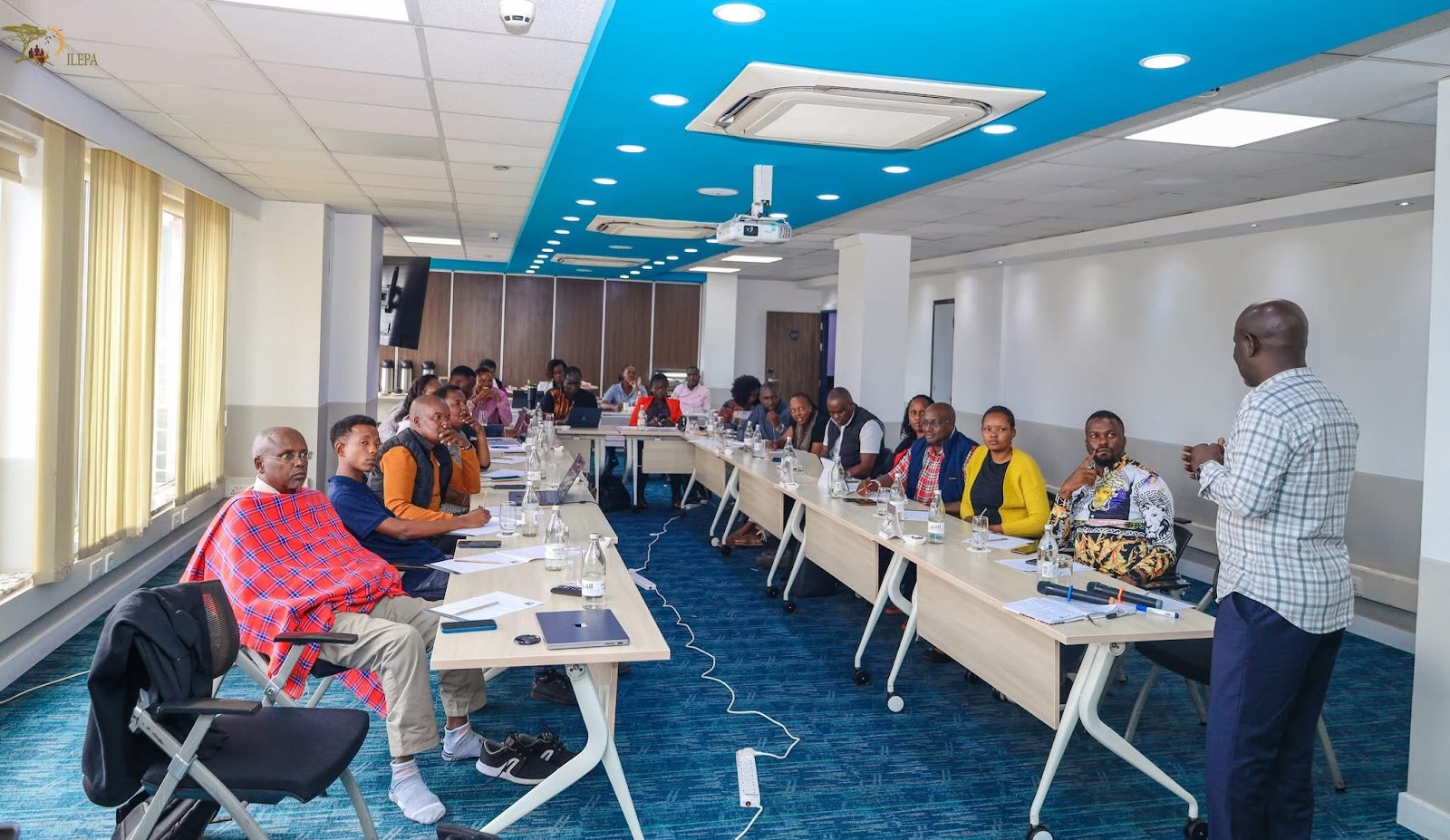
Ole Riamit addresses stakeholders on Indigenous rights, carbon markets, and the Climate Change Act 2024 during a high-level convening in Kenya.
Ole Ramit recalls how a geothermal energy project in southern Kenya, funded by the World Bank and EU, displaced Maasai communities without compensation or obtaining their Free, Prior and Informed Consent. “They were moved to non-productive lands, stripped of grazing rights, and denied access to ancestral sites. This is climate colonialism,” he says.
Despite having among the lowest carbon footprints globally, Indigenous Peoples suffer some of the worst impacts of climate change, including more frequent droughts, food insecurity, and cultural dislocation. At the same time, their territories hold over 80% of the planet’s biodiversity.
ILEPA calls for a true Just Transition, one that places Indigenous voices at the center of climate decisions and recognizes the cost communities pay for global solutions. “The benefits of these projects go to investors, [but] the costs stay with us,” Ole Ramit says. “We’re not protesters, we’re solution-bringers. But we won’t let climate justice be another tool for dispossession.”
Toward a Future of True Self-Determination
In every victory, ILEPA has remained anchored in its founding principle: to arise with evidence, to amplify community voice, and to make itself irrelevant by transferring power back to the people. “When our communities can rise, speak, and act for themselves, we’ve done our job,” Ole Riamit says. “The story of ILEPA is not about saving anyone. It’s about walking with them until they can lead the way.”
This is not just the story of one community. It is a global lesson, a map of resistance that doubles as a vision for Indigenous-led development, climate equity, and cultural revival. In the spirit of ilepa, the Maasai are not waiting for permission to survive. This isn’t just resistance, it’s resurgence. This is how Indigenous Peoples arise.
Top photo; Stanley Kimaren Ole Riamit, Founder and Director, Indigenous Livelihoods Enhancement Partners (ILEPA), Kenya.

